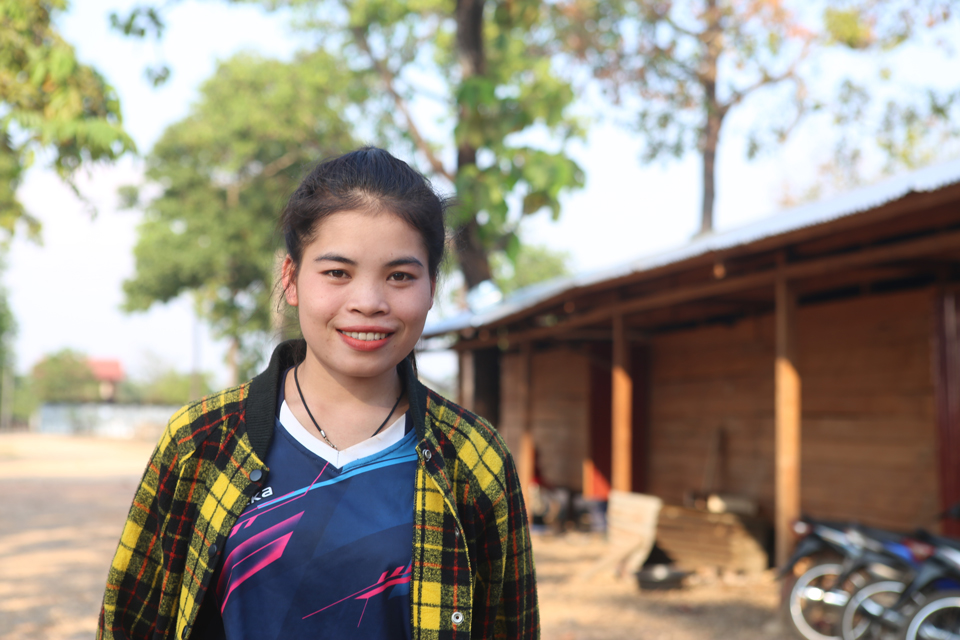A year has passed since Lao teenager Khied experienced the “most terrible nightmare imaginable”.
The collapse of a dam in Attapeu in July 2018 caused flash flooding into Khied’s small village in southern Laos and spread into neighbouring Cambodia.
At least 26 people reportedly died and more than 6,000 children and their families were displaced, seeking refuge in camps.
Khied’s family lost their home and everything they owned.
The ensuing 12 months have brought many challenges, but Khied says she has emerged stronger, thanks to ChildFund supporters and the Australian Government through the Australian NGO Cooperation Program (ANCP) which helped to provide vital relief after the floods.
“Among all the misfortune there have still been some really good things that have made me happy,” Khied says.
“I’ve never felt discouraged or cursed by fate as a result of the disaster. It has made me into a much stronger person in both body and mind.”
After the flooding, Khied was worried she would not return to school. Her family was homeless and her parents had no way to make a living.
The event had been traumatic.
After their home was destroyed, Khied was dragged out with her brother and sister by the force of the water, to the forest.
It was five days before they saw their parents again.
“During the flood, I told my sister and brother to hold onto a tree so we would not float away,” Khied said. “There was so much debris like roofs, and logs and rocks that hit us.
“I had to stay alert and take care of my brother and sister so they wouldn’t be scared.”
The siblings ended up on a mountain in the forest, where they stayed overnight.
The next day, Khied saw the extent of the devastation. Debris was floating everywhere and there wasn’t a house in sight.
“I could only hear the sounds of people, injured and crying,” she says.
“I tried looking for my parents and calling out for them, but I didn’t see them anywhere.”
They spent seven months at a displacement camp supported by ChildFund Laos, where the family received the help it needed to get back on its feet.
Khied was able to return to school and is now excited about finishing her studies next year.
She says the time she spent volunteering at a Child-Friendly Space at the camp has made her more confident about the future.
“I have learned to be more courageous, to participate more, and am better at sharing my thoughts and opinions,” Khied says.
“Part of that is that I’ve been able to attend trainings on how to implement activities through the Child-Friendly Spaces project.
“This has also allowed me to participate better and play a greater role in activities at my own school, especially dancing and playing sports.
“I even play on my school’s volleyball team.”






























